Good morning. Please introduce yourself Derek; what do you make, do and how?
Morning! I’m Derek Scurll, I’m a musician specialising in playing and teaching percussion.
How did you become interested in Percussion?
I’m not totally sure! I learnt piano and violin, then cello, before taking up percussion.
At what age did you start drumming and what inspired you to do so?
I started learning orchestral percussion aged 11, at my local music school. Drum kit came a few years later. My first drum teacher (Sid Cooper) was particularly inspirational.
How did you develop your percussion skills and gain experience in this area?
I was lucky enough to grow up in Essex, where there was a thriving youth music culture. I spent a lot of time in local orchestras, learning from some fantastic tutors; I then had two years attending the Junior RAM.
How did you start your Jazz course?
I was quite a late starter to the jazz world, and through attending many workshops I have a good sense of what works and what doesn’t; I feel that I have something worthwhile to contribute to others, particularly those such as myself who started as classical players and want to work on improvisation, jazz standards, aural skills etc.
My recent course was going to be in person but then 2020 happened, so we went online. This presented a few challenges, and it was a shame not to be able to make music all together in the same space. So I have spent a lot of time adapting material for online delivery (as have all the teachers I know), and adjusting the syllabus to account for what works online, and to work around the needs and wishes of the participants. This touches on my approach to teaching in general, i.e. that it should be as bespoke as possible.
What does a 'typical' day look like for you (or what might your day consist of)?
This year has shown me that there isn’t much typical about my days! I am grateful for the variety. Inevitably, I work around blocks of teaching and/or times when I’m out gigging or recording (and it has been wonderful to do even a small amount of both of these). I am mostly intuitive about my practice, unless I am preparing for something pressing in which case I can be very focused.
My wife (who teaches woodwinds and choirs) and I prefer not to start too early, so often we have the luxury of a leisurely coffee before getting to work.
Is there anything about being a percussionist that challenges you?
Some aspects of the instruments take a fair amount of maintenance practice, and as I am a general percussionist rather than a specialist, it can be difficult to juggle the different disciplines.
Do you prefer live or online performance? What do you like about each?
The short answer is live: being able to hear other musicians and react to them in the same space is something that technology will probably never totally replace. Also, seeing and hearing the audience in the same space is far more rewarding than even knowing that there are people “out there.” On the flip side, I certainly haven’t missed driving large distances, or moving lots of big, heavy instruments around.
Do you prefer performing live or recording music?
I think it pays to approach each with a clear idea of the positives. I like being able to do dozens of takes, if necessary, in order to end up with a really polished result; there is also something liberating about knowing that you can’t have a second crack at a live performance, and this (maybe counter-intuitively) sometimes makes me take more risks when on stage.
Do you have a favourite artist who inspired you and if you do, in what way?
This will probably sound like a cop-out, but I take lots of things from all sorts of performers, and not necessarily ones who play the same instruments as I do. One of my recommendations in the area of jazz and improvised music has always been to transcribe other instruments, for example saxophone lines onto vibraphone.
What else inspires your music?
Possibly the greatest presence in terms of teaching and work ethic is Bob Armstrong: I took drum kit lessons with Bob for many years, and his approach is with me in most things.
Tell me about your appearances on Top of the Pops and Children in Need?
That was a pretty crazy time! I remember being on a theatre show when I got a call from a friend, who needed to dep out some TV appearances. This was miming keyboards in Vinnie Jones’s backing band. I would recommend it particularly to any early-career performer.
What do you think the future of Percussion is?
I think it will get increasingly diverse, and most players will have to specialise to at least some degree. Technology will only get more important, and I think all musicians should spend time getting to grips with electronic instruments and recording, editing, mixing, etc if only in a small way. Most schools and higher education places have grasped this.
What educational pathway did you choose to support your career?
I went to university instead of music college, thinking that I could do a postgraduate in performing if I wanted – I never did, so my later performance development has been less formal. As I have not gone into full-time performing, or academia, I think the mix prepared me quite well.
Where do you see your career going from here?
I would love to keep my performing life interesting, and I am very lucky to work with a wide variety of fantastic musicians, who are also wonderful people (funny how that happens!). I would like to compose more (this is the third strand of my musical life that has always remained a little in the background). And I would like to see my teaching remain broad in scope, as I do enjoy teaching beginners as well as advanced players. I think one of my strengths as a teacher is getting to the heart of what someone should be working on, even if that isn’t why they have come to me for lessons.
I know that you play a variety of instruments; however which is your favourite to perform on?
Drum kit is my comfort zone; piano my therapy; tuned percussion increasingly my voice; everything else is mainly a diversion!
What sort of pieces are in your repertoire?
I love playing Bach, though I don’t think I do it well. If you asked me to play a tune, I would probably play a jazz standard.
On the topic of performance, do you have a favourite piece to play?
Maybe some of the Bach cello suites (on vibraphone or marimba).
Your website says that you make arrangements for people. What sorts of things do you do?
This year, I have prepared a lot of backing tracks for students, so they can play through their pieces without their teacher in the room. This can be a great excuse to get creative with orchestration. I have transcribed and arranged for big band (this started soon after uni), which is a very flexible medium. And I arrange and adapt pieces for my students to play.
How do you express your creativity through your arrangements?
I am good with harmony and counterpoint, so I will often adapt a piece if I feel it is “clunky”, or add a countermelody if it seems appropriate. Although I try to bear in mind that there is usually something more important at stake than my own preferences, which might be the need for the backing to be clear for a beginner to grasp their place with it, or being easy to sightread, if I know that there will be limited rehearsal time.
What would your advice be to a young person interested in becoming a career musician/percussionist?
Be a musician first and foremost. Open your ears to new sounds and styles. Sing! Be curious; read the other pieces in your books, not just the ones your teacher has taken you through. You know you’re a percussionist when everything is an instrument (next time you’re in a hardware shop, look for the people checking the spanners for playability). Buy a big car.


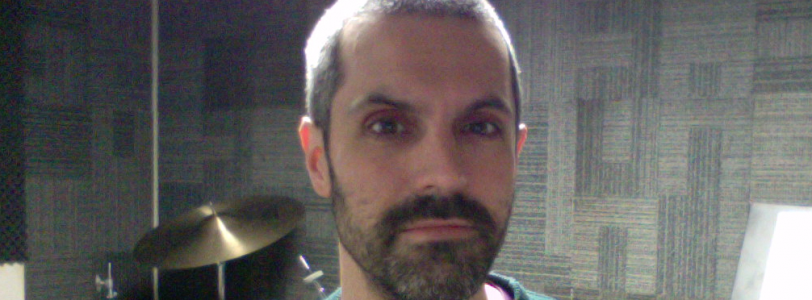
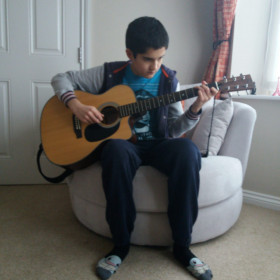

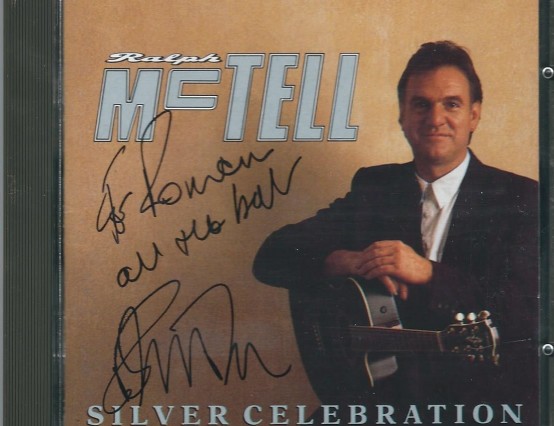



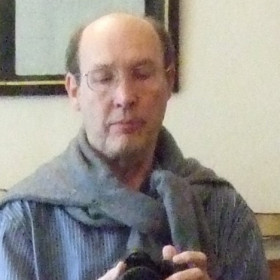

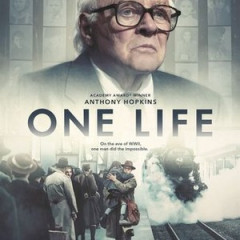
Interesting interview - the comments on the impact and uncertainty of Covid make interesting reading.